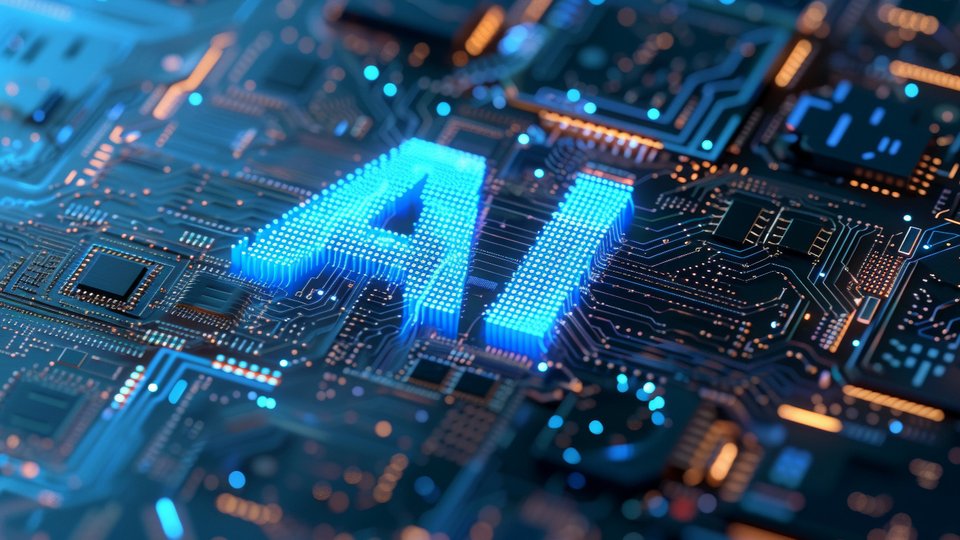AI
How Gen AI is shaping the way CPG, retailers operate
The integration of Gen AI in the CPG and retail sector is driving efficiency, enhancing customer satisfaction and fostering innovation, making it a crucial tool for retailers looking to stay competitive in a rapidly evolving market.

August 5, 2025 by Naveen Saini — VP, Head of Industry, Consumer Products, Retail, Services and Public Sector, Capgemini Engineering, Capgemini
Gen AI is rapidly transforming the consumer-packaged goods and retail sector, offering significant benefits across various aspects of the industry.
According to research, more than half of retail (71%) and consumer products (74%) organizations view Gen AI as a transformative technology.
Gen AI is helping companies stay ahead of market trends by analyzing historical sales data, brand loyalty, customer preferences, and competing product trends. It also improves decision-making by extracting insights from sales transactions, social media interactions, and customer feedback.
Additionally, this technology is being used to optimize product innovation, streamline agile supply chains, enhance customer experiences and improve marketing and R&D strategies.
And this is just the beginning.
Obstacles along the way
When it comes to CPG and retail, the process starts with creating a new product, followed by engineering and manufacturing, supply chain management, and finally reaching the store and understanding consumer behavior. As you can imagine, there are various touch points in the product lifecycle where challenges can arise, and Gen AI is being leveraged to address these issues.
Manufacturing challenges start with maintaining product consistency and cost optimization, while dealing with supplier variance, availability of skilled labor and agility of demands.
On the supply chain side, challenges include geopolitical tensions, supplier diversity, rising fuel costs, and inflation. Companies are seeking ways to optimize routes and manage logistics more efficiently. From a technology perspective, digital transformation is crucial, with a focus on AI, automation, IT centralization, and leveraging data from manufacturing plants to improve time-to- market and customization.
Labor shortages and training challenges also persist, with high attrition rates and the need to upskill employees. To address this, there are companies using gamification and 2D/3D modeling to train employees in real-time, reducing the need for physical presence in potentially dangerous situations.
There are also substantial regulatory and compliance pressures related to sustainability and data privacy, specifically within the food CPG sector. Gen AI can help by suggesting alternative packaging and ingredients that are more environmentally friendly and by reducing energy consumption in manufacturing processes.
Predictive analytics can also be used to anticipate disruptions in the supply chain, optimize routes, and manage inventory more effectively.
Despite the various hurdles that present themselves in this industry, organizations are looking to this advanced technology to enhance and deliver end-to-end accelerated solutions all the way from the creation of a product to the customer's hand.
Case examples
Although Gen AI is still in its early stages for CPG and retail, multiple use cases are being explored. For example, a beverage client of ours wanted to create a new drink with a new flavor. To achieve this, the client needed to consider all the necessary ingredients and specifications. By integrating a chatbot with Gen AI, they could simply input a text query and receive the complete specifications instantly.
Gen AI is also helping with overall product design and simulation, enabling faster time-to-market for new products tailored to specific needs. For instance, a large fragrance company wanted to create a new scent for a particular geographic area with specific demographic characteristics. This would normally require extensive documentation review, but with Gen AI, the company could quickly access all past ingredient information, enhance the engineering process, and generate the recipe in no time.
Lastly, a homecare CPG company has been utilizing Gen AI to control equipment in real-time, reducing waste and improving quality. By leveraging computer vision cameras in their manufacturing plants to detect defects and remove defective products from the production line, the company is enhancing overall product quality and customer experience.
Revolutionizing CPG and retail with digital twins
Once a new product idea is established, clinical trials are necessary. CPG companies are leveraging Gen AI and digital twins for process automation to build and execute these trials virtually, gaining traction in this area.
A digital twin is a virtual representation of a physical entity, such as a product, system or process that is updated with real-time data.
Digital twins can help create customized store layouts, including determining the optimal placement of products to increase sales and foot traffic, especially during events like Black Friday. By creating a 3D model of the store, clients can customize and simulate product placements to gain insights into consumer behavior. This includes understanding how consumers interact with fast-moving consumer goods and optimizing inventory operations.
The integration of Gen AI in the CPG and retail sector is driving efficiency, enhancing customer satisfaction, and fostering innovation, making it a crucial tool for companies looking to stay competitive in a rapidly evolving market.
About Naveen Saini
Naveen Saini is Vice President and Head of Consumer Products, Retail & Services and Public Sector for Engineering at Capgemini Americas. He leads overall growth strategy, sales and solutions. Naveen helps clients accelerate the digital convergence of product, software, data and services at Capgemini.
 ChatGPT
ChatGPT Grok
Grok Perplexity
Perplexity Claude
Claude




